SEO
Reddit In Google Search Lacks Credibility

Google dramatically increased the amount of Reddit answers in the search results in order to surface actual user opinions but it’s becoming increasingly apparent that it’s having a negative effect on the quality of search results. Everyone seems to know it but Google.
Lack of Expertise But Makes Sense
User generated content that is typically found in product reviews, travel reviews, Reddit and in web forums are opinions formed by anonymous people of unknown experience and expertise. It is based on personal opinions and biases that are limited to each person’s experience and unfortunately, a lack of experience has never stopped anyone from expressing their opinion.
The frightening quality of user generated content typically found on Reddit is when an opinion “makes sense” (regardless of factual accuracy) it is practically guaranteed that it will get upvoted by all the other similarly experienced users who lack the expertise to tell the difference between inaccurate opinions that “makes sense” versus factually accurate opinions.
All you have to do is look at the SEO community running from one trend to another because the ideas make sense and are inevitably discarded.
Ideas that make sense are similar to AI hallucinations. AI hallucinations “sound right” but sounding right is not the same as factually accurate. The legacy of things that make sense is the idea that the sun revolves around the earth, which “made sense” for millenniums.
Common sense is a big problem at Reddit because it allows those who lack experience and expertise to share plausible yet factually inaccurate opinions.
I asked Chef Allen (Facebook Profile) about the expertise of the food and recipe discussions on Reddit.
She shared her expert opinion:
“Reddit is not a reliable place to get recipes. From untested recipes to improper measurements and lack of instructions, finding a trustworthy recipe on Reddit is nearly impossible. People mean well, but most responses to recipe requests are met with what is sure to be disappointing results if one were actually to attempt to make the suggested recipe.
Reddit just isn’t designed for sharing tried-and-tested recipes from experienced recipe developers.”
Example Of Facts Versus Reddit Opinions
There are many examples of how a lack of expertise by Redditors leads to opinions and biases that override facts and negatively impacts the quality of the content.
This is one example that is related to SEO.
Two facts about links:
- Googler Gary Illyes explained at Pubcon Austin that links aren’t in the top 3 of ranking factors anymore.
- Then consider that in March 2024 Google’s spam policy page deemphasized links by stating they’re a ranking factor but no longer saying they’re an important ranking factor.
On Reddit today someone observes that links aren’t playing as strong a role as in the past.
Screenshot Of A Reddit Post About Links
And several Redditors argue against it, including sine who joined Reddit within the past few years and may have entirely missed the heyday of when links were the undisputable #1 ranking factor.
Here’s one person’s response:
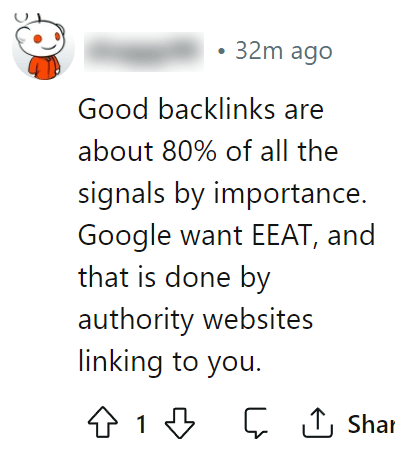
Here’s another example. A top ranking Reddit thread for how to make birria de res, which is a Mexican braised meat recipe for cooking goat meat that originated in the Mexican state of Jalisco.
The first person to answer is someone who is guessing what type of meat is good for a birria.
Redditor Guessing An Answer
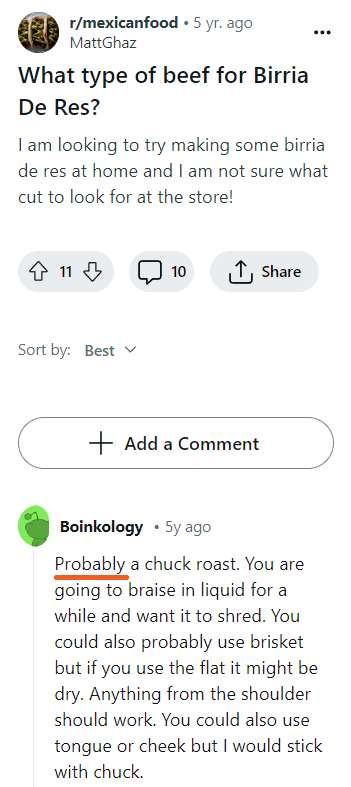
That person posting a guess is typical of the responses given in not just that Reddit thread but in any number of discussions. That’s not to say there aren’t experts on Reddit but for those of you with years of experience in SEO, when was the last time you turned to Reddit for SEO advice?
Lack Of EEAT In User Generated Content
The idea of ranking the views of real people makes sense, perhaps more in some contexts than others. For example, when it comes to saltwater fishing I would 100% take the opinion of someone posting on a dedicated east coast fishing forum like Stripers Online or from one of the writers at Surfcaster’s Journal who all have decades of hands-on fishing experience. I value the expertise of of Surfcaster’s Journal so much that I pay for access to their content. It’s that good.
But what about Reddit? I have expertise in saltwater and freshwater fishing and truthfully, Reddit is the last place I would ever turn to for fishing advice.
For example, it’s well-known that the best time for catching striped bass on the east coast is at night when striped bass sneak around in the dark to ambush prey. They can be caught during the day but the night time is without question the best time for catching the larger keeper size fish.
Yet many top ranked discussions on Reddit focus on daytime fishing.
Example Of Personal Bias In A Reddit Answer
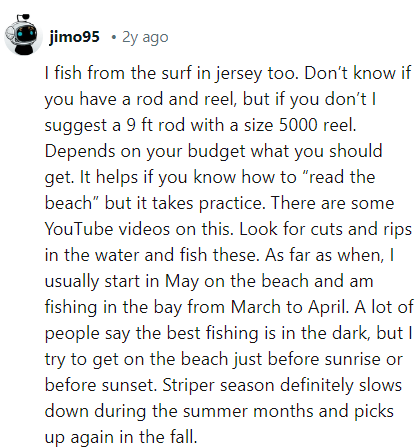
Contrast that with the logo of Surfcaster’s Journal where it’s clear that fishing at night is the heart of the sport of striped bass fishing.

Recipe Sites Versus Reddit
Casey Markee (@MediaWyse), a well-regarded search marketing consultant specializing in optimizing recipe and food blogs agrees that Reddit threads in the search results are a poor experience for users.
He explained:
“Although Google has argued that the proliferation of Reddit results is to provide more first-hand experience to guide users, rarely does this result in superior results in the recipe niche. Especially for more complicated recipes, the detailed step by step instructions and expert tips that come with those recipes, fare outshine what you’ll find in a ranking Reddit thread.
For example, a complicated recipe like “Beef Wellington” has a lot that can go wrong, especially with regard to the phyllo dough and getting clean cuts when it’s done. You need only look at the Reddit result returned for this query, and compare it to the many better written and more detailed recipes, to see how large the gap is between presented expertise.
You absolutely wouldn’t want to rely on a Reddit thread alone to make even the average complicated recipe. The results will not be satisfying. Most Reddit threads are “too general” and really don’t provide the needed level of expertise to ensure a recipe is done ‘perfectly’ the first time.”
Top Reasons Why Reddit Should Not Be Highly Ranked
- Lack of Expertise
This is self-evident by now. - Anonymity
The anonymous nature of Reddit among the millions of users makes it easy for anyone to post anything without experiencing the self-moderating effects of a forum community where expert members are always near to pick apart poor advice. - Bias
Reddit answers tend to reflect the biases of the users, some of which arise from a lack of experience - Subjectivity
Reddit posts tend to be based on the preconceptions or tastes that may have more to do with their geographic and cultural background than facts, experience and knowledge. - Echo Chambers
This is a well-known effect where likeminded people will coalesce and reinforce each other’s preconceptions and biases. - Cognitive Biases
A common trait in social media and user generated content is that cognitive biases like the Dunning-Kruger effect are amplified. The Dunning-Kruger effect is when someone who lacks expertise overestimate their subject matter knowledge and contributes to the overall decline of understanding. - Oversimplification
This relates to what Casey mentioned about Reddit threads being “too general” and one of the reasons for this is that the people who are answering the questions lack the contextual understanding and all of the nuance that goes with that which leads to oversimplification of any given topic.
Google Is Using Content Of Dubious Expertise
The definition of dubious is something that cannot be trusted or and is doubtful. Opinions shared on Reddit by people who lack expertise and are sharing opinions in anonymity qualify as dubious. Yet Google is not only favoring Reddit in the search results, it is also paying millions of dollars for access to content that is lacking in expertise, experience, authoritativeness and trustworthiness.
Google has stated that it is prioritizing content from actual people with experience, which makes sense in certain contexts such as their experiences with products. But does prioritizing Reddit content stray too far from surfacing content with actual expertise?
Featured Image by Shutterstock/Roman Samborskyi
SEO
Google Rolls Out New ‘Web’ Filter For Search Results
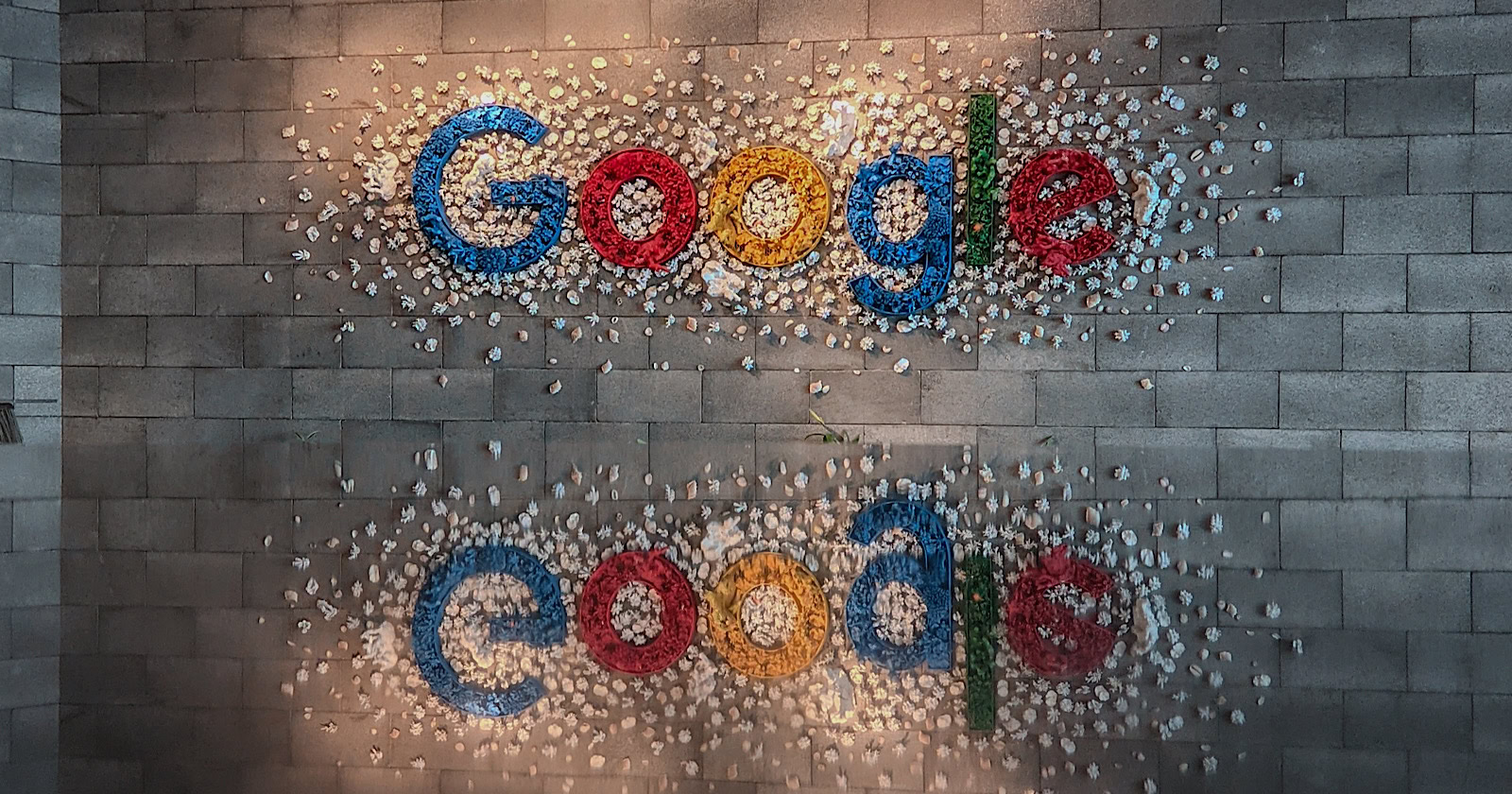
Google is introducing a filter that allows you to view only text-based webpages in search results.
The “Web” filter, rolling out globally over the next two days, addresses demand from searchers who prefer a stripped-down, simplified view of search results.
Danny Sullivan, Google’s Search Liaison, states in an announcement:
“We’ve added this after hearing from some that there are times when they’d prefer to just see links to web pages in their search results, such as if they’re looking for longer-form text documents, using a device with limited internet access, or those who just prefer text-based results shown separately from search features.”
We’ve added this after hearing from some that there are times when they’d prefer to just see links to web pages in their search results, such as if they’re looking for longer-form text documents, using a device with limited internet access, or those who just prefer text-based…
— Google SearchLiaison (@searchliaison) May 14, 2024
The new functionality is a throwback to when search results were more straightforward. Now, they often combine rich media like images, videos, and shopping ads alongside the traditional list of web links.
How It Works
On mobile devices, the “Web” filter will be displayed alongside other filter options like “Images” and “News.”
If Google’s systems don’t automatically surface it based on the search query, desktop users may need to select “More” to access it.
 Screenshot from: twitter.com/GoogleSearchLiaison, May 2024.
Screenshot from: twitter.com/GoogleSearchLiaison, May 2024.More About Google Search Filters
Google’s search filters allow you to narrow results by type. The options displayed are dynamically generated based on your search query and what Google’s systems determine could be most relevant.
The “All Filters” option provides access to filters that are not shown automatically.
Alongside filters, Google also displays “Topics” – suggested related terms that can further refine or expand a user’s original query into new areas of exploration.
For more about Google’s search filters, see its official help page.
Featured Image: egaranugrah/Shutterstock
SEO
Why Google Can’t Tell You About Every Ranking Drop

In a recent Twitter exchange, Google’s Search Liaison, Danny Sullivan, provided insight into how the search engine handles algorithmic spam actions and ranking drops.
The discussion was sparked by a website owner’s complaint about a significant traffic loss and the inability to request a manual review.
Sullivan clarified that a site could be affected by an algorithmic spam action or simply not ranking well due to other factors.
He emphasized that many sites experiencing ranking drops mistakenly attribute it to an algorithmic spam action when that may not be the case.
“I’ve looked at many sites where people have complained about losing rankings and decide they have a algorithmic spam action against them, but they don’t. “
Sullivan’s full statement will help you understand Google’s transparency challenges.
Additionally, he explains why the desire for manual review to override automated rankings may be misguided.
Two different things. A site could have an algorithmic spam action. A site could be not ranking well because other systems that *are not about spam* just don’t see it as helpful.
I’ve looked at many sites where people have complained about losing rankings and decide they have a…
— Google SearchLiaison (@searchliaison) May 13, 2024
Challenges In Transparency & Manual Intervention
Sullivan acknowledged the idea of providing more transparency in Search Console, potentially notifying site owners of algorithmic actions similar to manual actions.
However, he highlighted two key challenges:
- Revealing algorithmic spam indicators could allow bad actors to game the system.
- Algorithmic actions are not site-specific and cannot be manually lifted.
Sullivan expressed sympathy for the frustration of not knowing the cause of a traffic drop and the inability to communicate with someone about it.
However, he cautioned against the desire for a manual intervention to override the automated systems’ rankings.
Sullivan states:
“…you don’t really want to think “Oh, I just wish I had a manual action, that would be so much easier.” You really don’t want your individual site coming the attention of our spam analysts. First, it’s not like manual actions are somehow instantly processed. Second, it’s just something we know about a site going forward, especially if it says it has change but hasn’t really.”
Determining Content Helpfulness & Reliability
Moving beyond spam, Sullivan discussed various systems that assess the helpfulness, usefulness, and reliability of individual content and sites.
He acknowledged that these systems are imperfect and some high-quality sites may not be recognized as well as they should be.
“Some of them ranking really well. But they’ve moved down a bit in small positions enough that the traffic drop is notable. They assume they have fundamental issues but don’t, really — which is why we added a whole section about this to our debugging traffic drops page.”
Sullivan revealed ongoing discussions about providing more indicators in Search Console to help creators understand their content’s performance.
“Another thing I’ve been discussing, and I’m not alone in this, is could we do more in Search Console to show some of these indicators. This is all challenging similar to all the stuff I said about spam, about how not wanting to let the systems get gamed, and also how there’s then no button we would push that’s like “actually more useful than our automated systems think — rank it better!” But maybe there’s a way we can find to share more, in a way that helps everyone and coupled with better guidance, would help creators.”
Advocacy For Small Publishers & Positive Progress
In response to a suggestion from Brandon Saltalamacchia, founder of RetroDodo, about manually reviewing “good” sites and providing guidance, Sullivan shared his thoughts on potential solutions.
He mentioned exploring ideas such as self-declaration through structured data for small publishers and learning from that information to make positive changes.
“I have some thoughts I’ve been exploring and proposing on what we might do with small publishers and self-declaring with structured data and how we might learn from that and use that in various ways. Which is getting way ahead of myself and the usual no promises but yes, I think and hope for ways to move ahead more positively.”
Sullivan said he can’t make promises or implement changes overnight, but he expressed hope for finding ways to move forward positively.
Featured Image: Tero Vesalainen/Shutterstock
SEO
56 Google Search Statistics to Bookmark for 2024
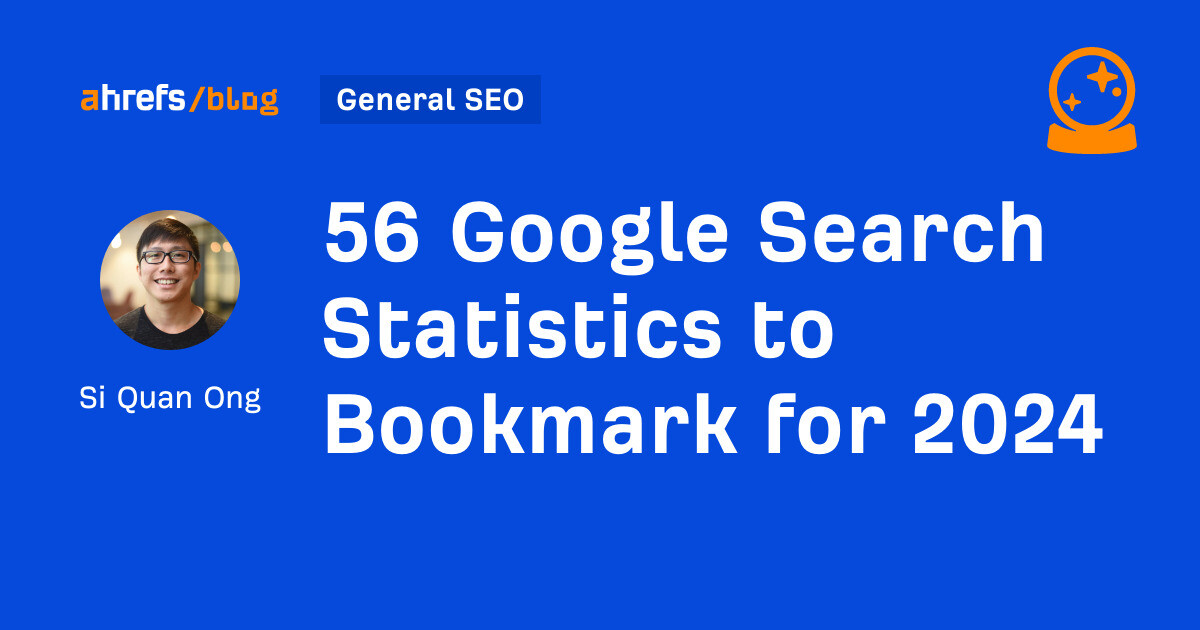
If you’re curious about the state of Google search in 2024, look no further.
Each year we pick, vet, and categorize a list of up-to-date statistics to give you insights from trusted sources on Google search trends.
- Google has a web index of “about 400 billion documents”. (The Capitol Forum)
- Google’s search index is over 100 million gigabytes in size. (Google)
- There are an estimated 3.5 billion searches on Google each day. (Internet Live Stats)
- 61.5% of desktop searches and 34.4% of mobile searches result in no clicks. (SparkToro)
- 15% of all Google searches have never been searched before. (Google)
- 94.74% of keywords get 10 monthly searches or fewer. (Ahrefs)
- The most searched keyword in the US and globally is “YouTube,” and youtube.com gets the most traffic from Google. (Ahrefs)
- 96.55% of all pages get zero search traffic from Google. (Ahrefs)
- 50-65% of all number-one spots are dominated by featured snippets. (Authority Hacker)
- Reddit is the most popular domain for product review queries. (Detailed)
- Google is the most used search engine in the world, with a mobile market share of 95.32% and a desktop market share of 81.95%. (Statista)
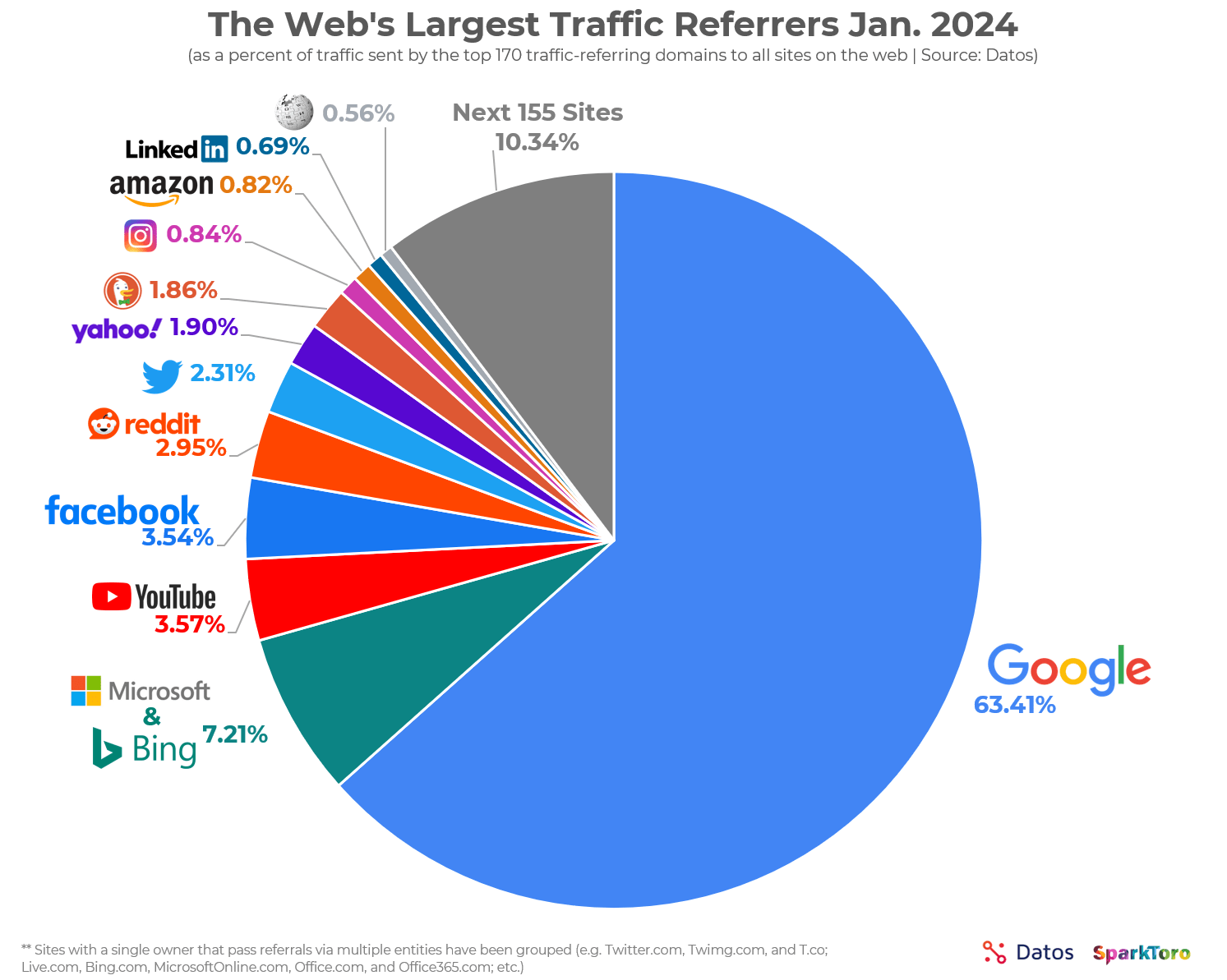

- Google.com generated 84.2 billion visits a month in 2023. (Statista)
- Google generated $307.4 billion in revenue in 2023. (Alphabet Investor Relations)
- 63.41% of all US web traffic referrals come from Google. (SparkToro)
- 92.96% of global traffic comes from Google Search, Google Images, and Google Maps. (SparkToro)
- Only 49% of Gen Z women use Google as their search engine. The rest use TikTok. (Search Engine Land)
- 58.67% of all website traffic worldwide comes from mobile phones. (Statista)
- 57% of local search queries are submitted using a mobile device or tablet. (ReviewTrackers)
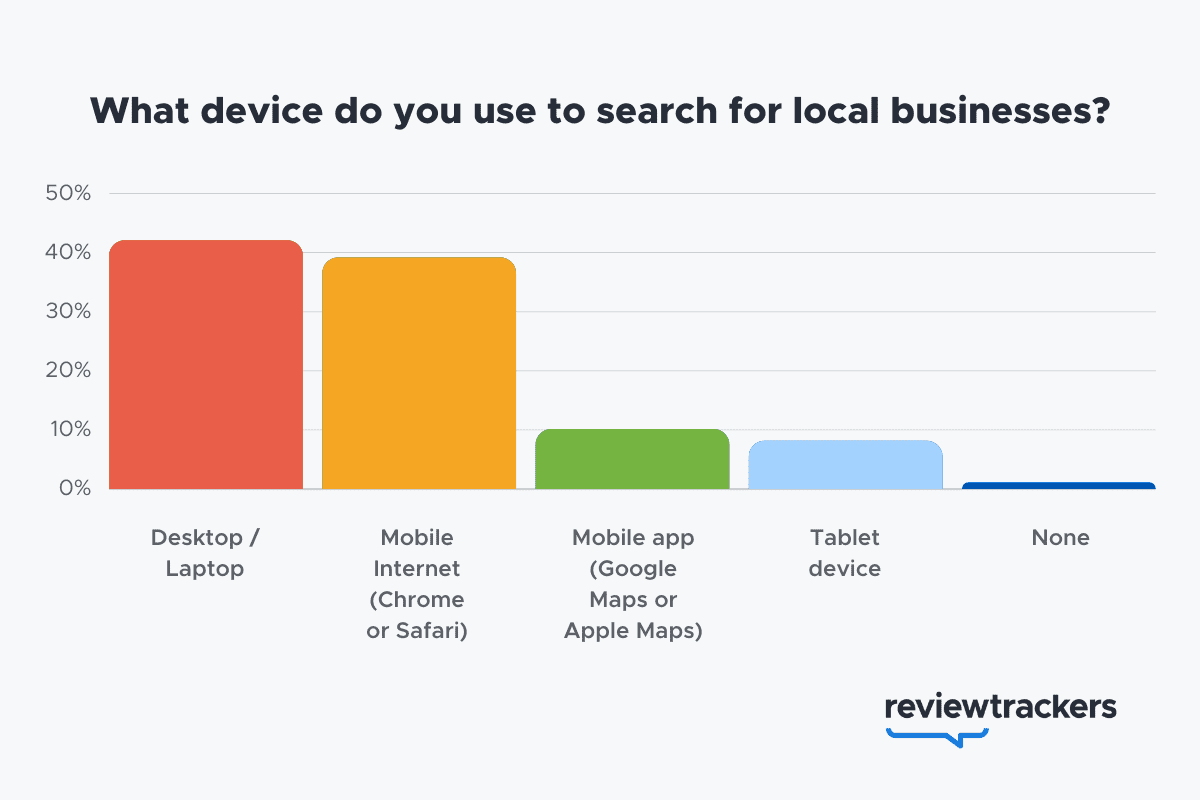

- 51% of smartphone users have discovered a new company or product when conducting a search on their smartphones. (Think With Google)
- 54% of smartphone users search for business hours, and 53% search for directions to local stores. (Think With Google)
- 18% of local searches on smartphones lead to a purchase within a day vs. 7% of non-local searches. (Think With Google)
- 56% of in-store shoppers used their smartphones to shop or research items while they were in-store. (Think With Google)
- 60% of smartphone users have contacted a business directly using the search results (e.g., “click to call” option). (Think With Google)
- 63.6% of consumers say they are likely to check reviews on Google before visiting a business location. (ReviewTrackers)
- 88% of consumers would use a business that replies to all of its reviews. (BrightLocal)
- Customers are 2.7 times more likely to consider a business reputable if they find a complete Business Profile on Google Search and Maps. (Google)
- Customers are 70% more likely to visit and 50% more likely to consider purchasing from businesses with a complete Business Profile. (Google)
- 76% of people who search on their smartphones for something nearby visit a business within a day. (Think With Google)
- 28% of searches for something nearby result in a purchase. (Think With Google)
- Mobile searches for “store open near me” (such as, “grocery store open near me” have grown by over 250% in the last two years. (Think With Google)
- People use Google Lens for 12 billion visual searches a month. (Google)
- 50% of online shoppers say images helped them decide what to buy. (Think With Google)
- There are an estimated 136 billion indexed images on Google Image Search. (Photutorial)
- 15.8% of Google SERPs show images. (Moz)
- People click on 3D images almost 50% more than static ones. (Google)
- More than 800 million people use Google Discover monthly to stay updated on their interests. (Google)
- 46% of Google Discover URLs are news sites, 44% e-commerce, 7% entertainment, and 2% travel. (Search Engine Journal)
- Even though news sites accounted for under 50% of Google Discover URLs, they received 99% of Discover clicks. (Search Engine Journal)
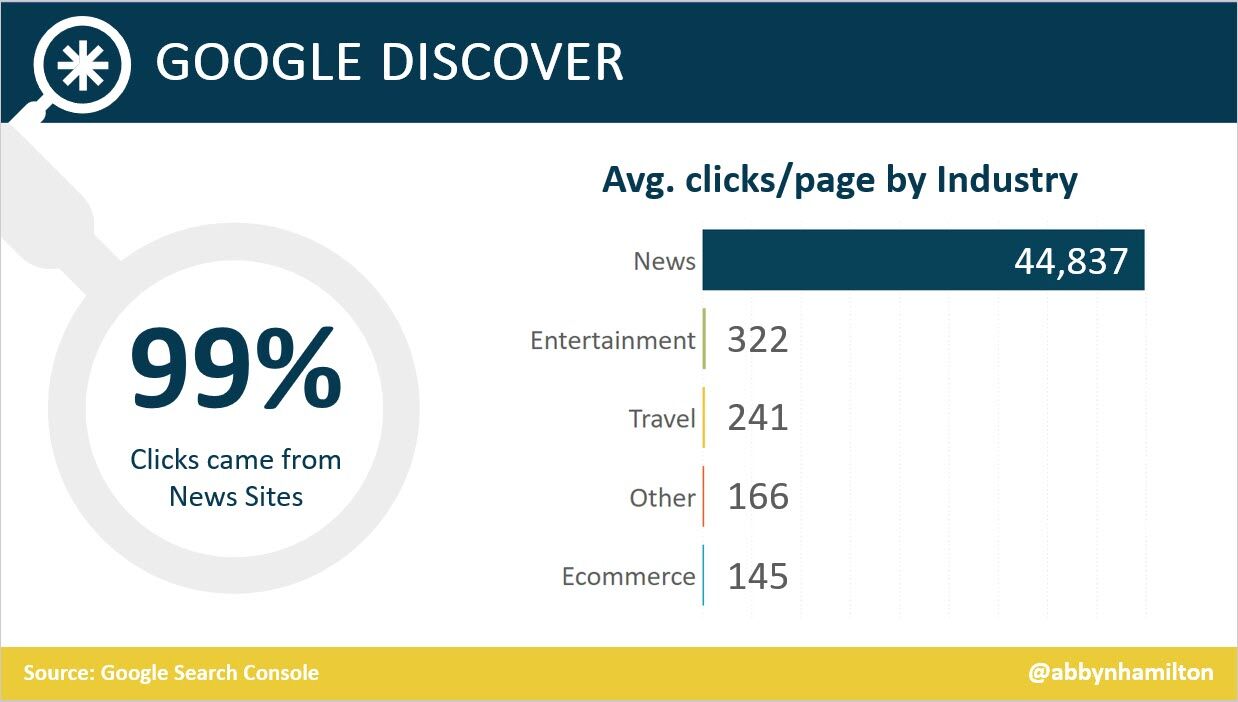

- Most Google Discover URLs only receive traffic for three to four days, with most of that traffic occurring one to two days after publishing. (Search Engine Journal)
- The clickthrough rate (CTR) for Google Discover is 11%. (Search Engine Journal)
- 91.45% of search volumes in Google Ads Keyword Planner are overestimates. (Ahrefs)
- For every $1 a business spends on Google Ads, they receive $8 in profit through Google Search and Ads. (Google)
- Google removed 5.5 billion ads, suspended 12.7 million advertiser accounts, restricted over 6.9 billion ads, and restricted ads from showing up on 2.1 billion publisher pages in 2023. (Google)
- The average shopping click-through rate (CTR) across all industries is 0.86% for Google Ads. (Wordstream)
- The average shopping cost per click (CPC) across all industries is $0.66 for Google Ads. (Wordstream)
- The average shopping conversion rate (CVR) across all industries is 1.91% for Google Ads. (Wordstream)
- 58% of consumers ages 25-34 use voice search daily. (UpCity)
- 16% of people use voice search for local “near me” searches. (UpCity)
- 67% of consumers say they’re very likely to use voice search when seeking information. (UpCity)
- Active users of the Google Assistant grew 4X over the past year, as of 2019. (Think With Google)
- Google Assistant hit 1 billion app installs. (Android Police)
- AI-generated answers from SGE were available for 91% of entertainment queries but only 17% of healthcare queries. (Statista)
- The AI-generated answers in Google’s Search Generative Experience (SGE) do not match any links from the top 10 Google organic search results 93.8% of the time. (Search Engine Journal)
- Google displays a Search Generative element for 86.8% of all search queries. (Authoritas)
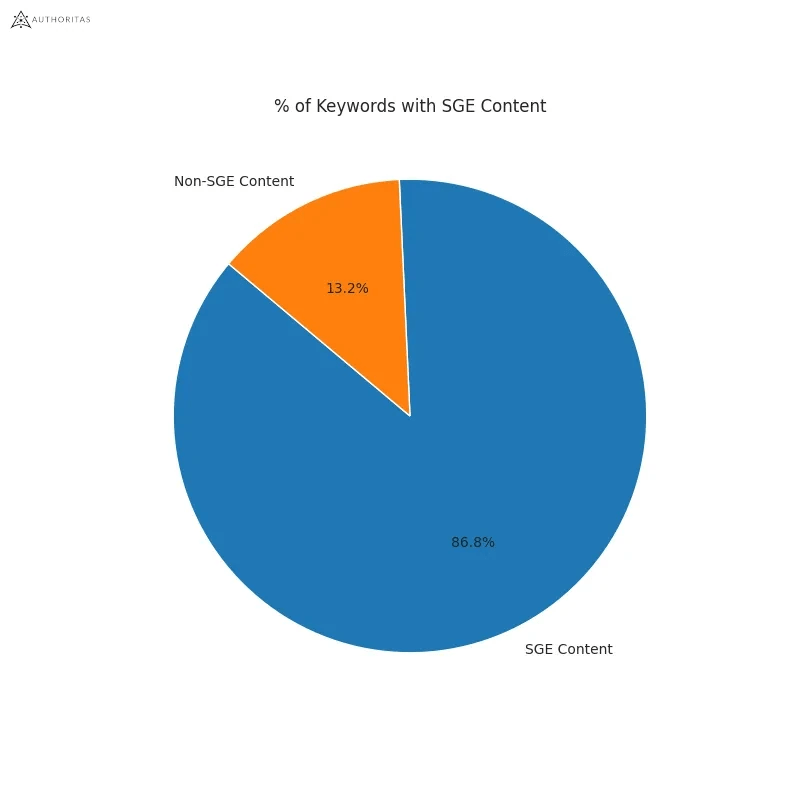

- 62% of generative links came from sources outside the top 10 ranking organic domains. Only 20.1% of generative URLs directly match an organic URL ranking on page one. (Authoritas)
- 70% of SEOs said that they were worried about the impact of SGE on organic search (Aira)
Learn more
Check out more resources on how Google works:
-

 PPC6 days ago
PPC6 days agoHow the TikTok Algorithm Works in 2024 (+9 Ways to Go Viral)
-

 SEO5 days ago
SEO5 days agoHow to Use Keywords for SEO: The Complete Beginner’s Guide
-

 MARKETING6 days ago
MARKETING6 days agoHow To Protect Your People and Brand
-
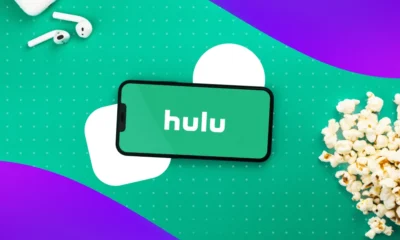
 MARKETING4 days ago
MARKETING4 days agoAdvertising on Hulu: Ad Formats, Examples & Tips
-

 MARKETING4 days ago
MARKETING4 days agoUpdates to data build service for better developer experiences
-

 MARKETING5 days ago
MARKETING5 days agoThe Ultimate Guide to Email Marketing
-

 SEO7 days ago
SEO7 days agoAutomate Multi-Site Reporting With Google Sheets And GSC API
-

 MARKETING21 hours ago
MARKETING21 hours ago18 Events and Conferences for Black Entrepreneurs in 2024













